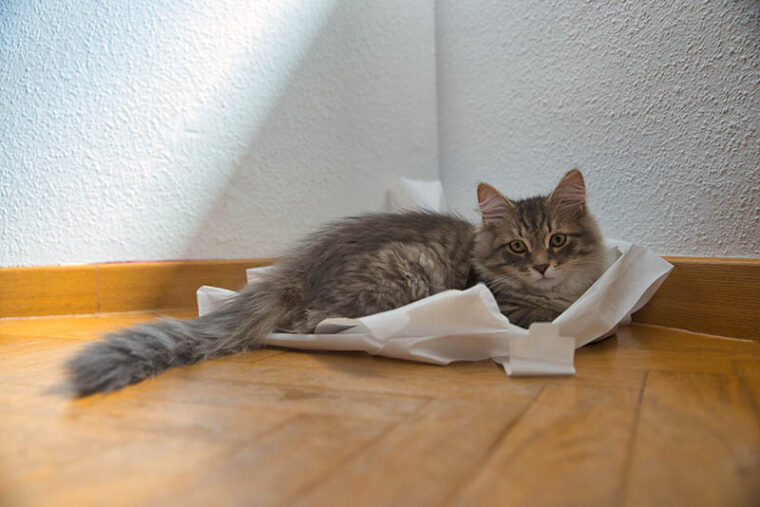
Cats can have strange habits, one of which is their tendency to chew on plastic. While it may seem strange to pet owners, this behavior is quite common among cats. Keep reading as we explore the reasons that they might engage in this behavior, such as out of hunger or due to anxiety, and discuss why it can become a problem.
The 8 Reasons Why Cats Like to Chew on Plastic So Much
1. Sensory Stimulation
Cats are curious creatures that love to explore their environment using all their senses. They often brush their face against something or chew on it a little to learn more about it, especially if they find it interesting or stimulating. Plastic texture and sound can appeal to cats, causing them to chew on it more frequently than other items.

2. Teething
Kittens love to chew on things because they are teething, and biting onto a hard surface helps them feel better. Plastic is usually easy to find around the house, and it’s hard enough to be effective as a chewing toy but provides more give than materials like metal or wood.
3. Hunger
Some cats might ingest pieces of plastic if the packaging or the bags contain food, especially if they are hungry or their diet doesn’t satisfy their nutritional needs. The plastic might also confuse the cat if it is in small pieces or resembles other food that they eat. Some plastic, like shopping bags, are made with cornstarch or gelatin to make them more biodegradable, giving them a flavor that your cats might enjoy. That’s why it’s important to keep such items away from pets.
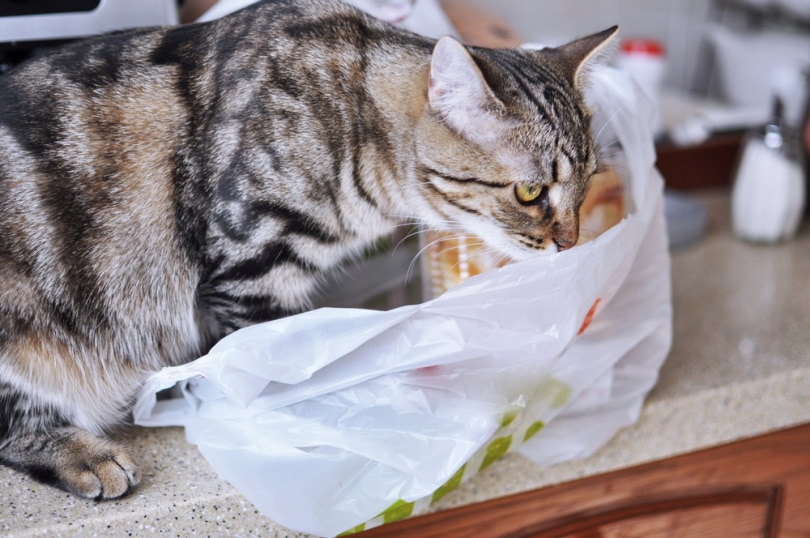
4. Pica
Pica is a condition that causes the cat to eat non-food items like plastic, paper, dirt, and fabric and can result in life-threatening internal blockages that require immediate veterinary attention. Cats with this condition are typically deficient in nutrients like minerals, so feeding them a balanced diet can help reduce the risk. It can also occur in cats with gastrointestinal, neurological, endocrine or other medical problems, so it can be a good idea to have your cat looked over by a vet if you notice them eating plastic. Finally, pica can be the result of high anxiety or boredom.
5. Anxiety and Stress
Cats that experience a great deal of stress might chew on plastic or other materials to self-soothe.
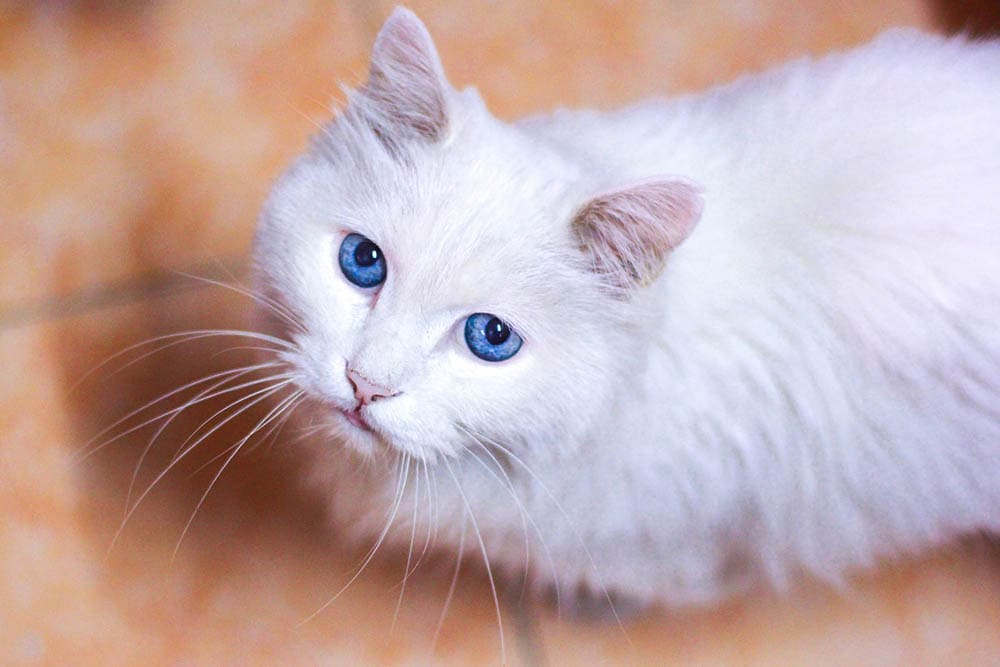
Chewing helps calm and relax many cats and temporarily distracts them from what’s bothering them. Many pet owners notice that their cats start doing it after they move to a new home or get a new pet. Cats that spend too much time alone might also start chewing on plastic.
6. Behavioral Issues
Your cat might be chewing on plastic due to a behavioral issue, such as boredom, lack of attention, or frustration. They might chew on plastic to get your attention when they want something, and they might also engage in other destructive behavior if you don’t give in. Many cats will also chew on plastic because they feel lonely.
7. Attention Seeking
While technically a behavior issue, your cat might be looking for attention when they chew on plastic. Cats are fast learners, and if you react to them chewing plastic before, there is a good chance that they will do it again. Attention seeking is likely the case if you notice them engaging in this behavior at the same time each day.
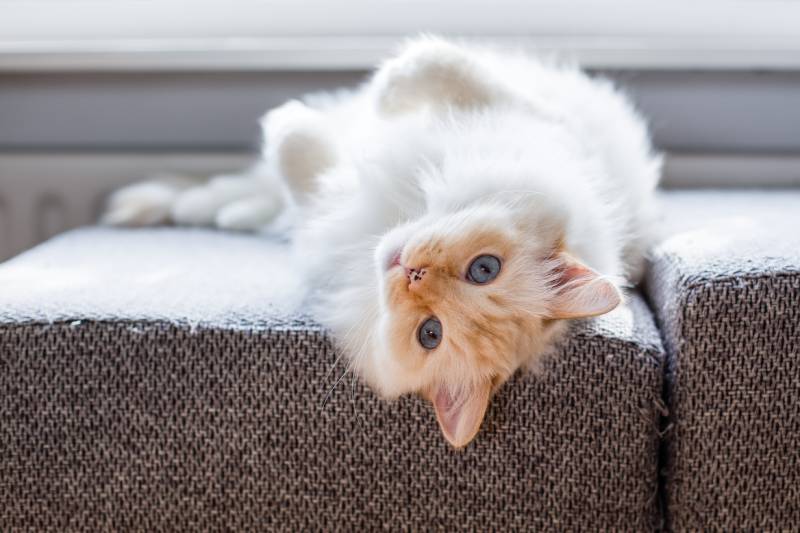
8. Dental Problems
While not as common, some cats might start to chew on plastic due to dental issues. Like with teething, chewing on plastic can help soothe the painful tooth or gum condition. If you notice that your cat is excessively chewing on plastic, have them looked over by a vet to rule out dental issues. They can also damage their teeth, gums or tongue while chewing plastic, so this behavior needs to be stopped and the root cause identified.
What Should You Do If Your Cat Is Chewing on Plastic?
If your cat is chewing on plastic, you can do a few things to discourage the behavior, like ensuring that they have plenty to eat and get a high-quality diet that meets their nutritional needs. The cat should also have plenty of toys and regularly interact with people and other pets. If you think that they are chewing on plastic due to anxiety or stress, try to identify and address the underlying problem. If they are teething, provide them with proper teething tools, or try giving them cat-safe fruits or vegetables like carrots or cucumbers, but in moderation. Finally, take the cat to a vet if you think that the chewing is due to an underlying dental issue, pica, or another health problem.
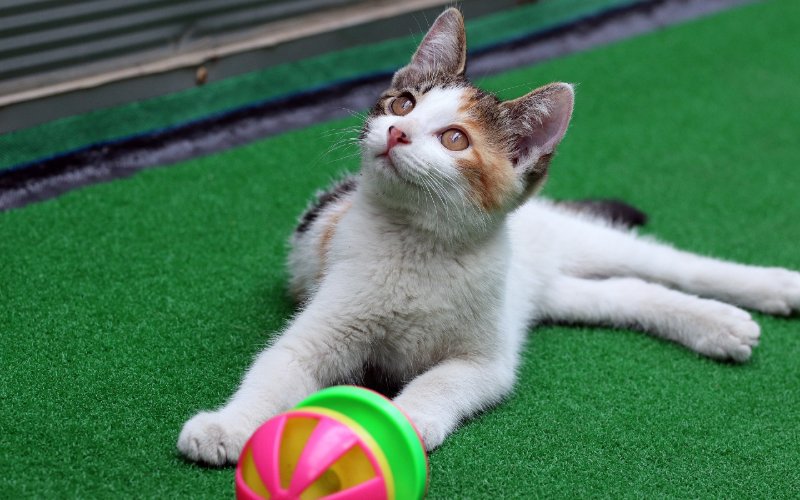
Other Tips and Tricks
Conclusion
While the behavior of cats chewing on plastic may seem odd to their owners, it is quite common among felines, which likely do it for several reasons. For example, there is a good chance that they want your attention, especially if it’s near feeding time. However, if they tend to do it throughout the day, it could be a sign that they are feeling stressed or developing a health issue, such as dental, gastrointestinal, endocrine, or other health problem. Try to give your cat high-quality cat food and plenty of attention and toys to keep them busy, but if that doesn’t work, take them to a veterinarian. The vet might also provide additional tips to help convince your cat to stop chewing plastic, or may identify an underlying medical reason for it.
Featured Image Credit: Jusvic, Shutterstock







